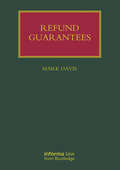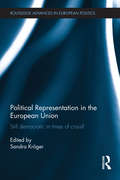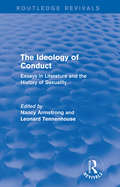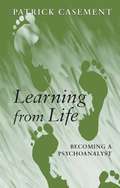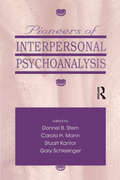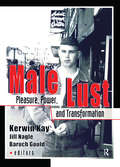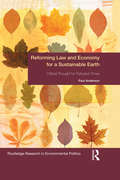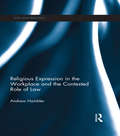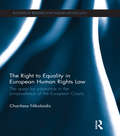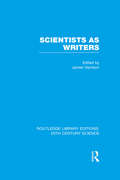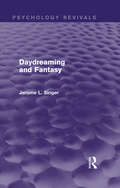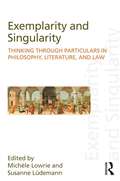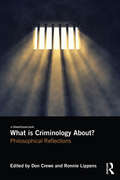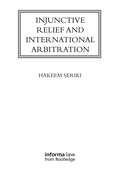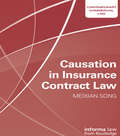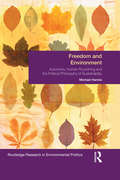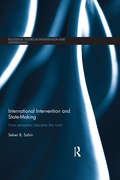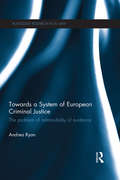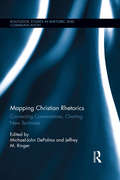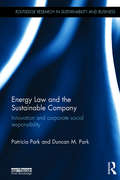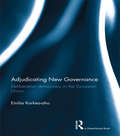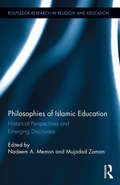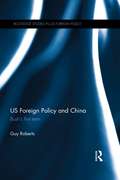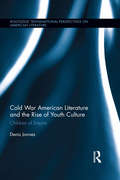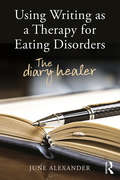Special Collections
Benetech’s Global Certified Accessible Titles
Description: Benetech’s GCA program is the first independent third-party EPUB certification to verify ebook accessibility. By creating content that is born accessible, publishers can meet the needs of all readers. Learn more: https://bornaccessible.benetech.org/
- Table View
- List View
Refund Guarantees
by Mark DavisA refund guarantee is an essential component of almost every shipbuilding project, without which the buyer will be unwilling or unable to proceed. There is no standard form of refund guarantee in universal usage, and both the form and substance of refund guarantee instruments vary widely from case to case. The ambiguity or uncertainty of the meaning of refund guarantee instruments, against a backdrop of a sharp downturn in the shipping markets, has led to numerous disputes in recent years concerning refund guarantees, which have been the subject of a number of important decisions of the English Courts. This is the first English law text book dedicated to the subject of refund guarantees. It provides essential guidance as to the issues arising and the pitfalls to be avoided. It analyses the specimen form of guarantee annexed to Bimco’s NEWBUILDCON form, and covers topics such as the circumstances in which the liability of the guarantor may be discharged, and when a builder may be entitled to obtain an injunction to restrain payment under a refund guarantee. It will be an essential and practical guide for those engaged in the shipbuilding industry, including shipbuilders, shipowners, banks and insurance companies, P&I clubs, and those advising them.
Political Representation in the European Union
by Sandra KrögerIn recent years the financial and economic crisis of 2008–9 has progressed into an equally important political and democratic crisis of the EU. These troubled times have set the framework to re-assess a number of important questions in regard to representative democracy in the EU, such as the normative foundation of political representation, the institutional relationship between representatives and represented, the link between democracy and representation and new arenas and actors. This book examines the diverse avenues through which different sorts of actors have expressed their voices during the Euro crisis and how their various interests are translated into the decision-making process. It offers a state-of- the-art assessment of what political representation means in this context as well as a contribution to the ‘representative turn’ in democratic theory. The authors address three key themes: • The main actors and channels of political representation in the EU. • Interlocking levels of representation in the EU and the way in which national and supranational representation works. • How the European institutional system represents EU citizens through law and administration. Focusing on the importance of representation in the legitimation of democracy, this book will be of interest to students and scholars of European Union politics, European studies, democratic theory, representation studies, civil society and transnational democracy.
The Ideology of Conduct
by Nancy Armstrong and Leonard TennenhouseIn The Ideology of Conduct, first published in 1987, scholars from various fields, from the medieval period to the present day, discuss literature in which the sole purpose is to instruct women in how to make themselves desirable. This collection investigates how middle-class writers who had long emulated the behaviour of the aristocracy began to criticise that behaviour by formulating an alternative object of desire. They did so without appearing to breed political controversy because it seemed to concern only the female. But writing for and about women in fact became a powerful instrument of hegemony as it introduced a whole new vocabulary for social relations, induced certain forms of economic behaviour as desirable in men and women respectively, and insured the reproduction of the nuclear family. It is argued, therefore, that the literature of conduct not only recorded but also assisted the production of our contemporary gender-based culture.
Learning from Life
by Patrick CasementAll of life can be a resource for our learning. In his fourth and most personal book, Patrick Casement attempts to understand what he has learned from life, sharing a wide range of those experiences that have helped shape the analyst he has become. Patrick Casement shares various incidents in his life to demonstrate how these helped lay a foundation for his subsequent understanding of psychoanalysis. These examples from his life and work are powerful and at times very moving, but always filled with hope and compassion. This unique book gives a fascinating insight into fundamental questions concerning the acquisition of analytic wisdom and how personal experiences shape the analyst's approach to clinical work. It will be of great interest to all psychoanalysts and psychoanalytic psychotherapists.
Pioneers of Interpersonal Psychoanalysis
by Donnel B. Stern and Carola H. Mann and Stuart Kantor and Gary SchlesingerThis volume brings together 14 classic papers by interpersonal pioneers. Collectively, these papers not only demonstrate the coherence and explanatory richness of interpersonal psychoanalysis; they anticipate the emphasis on relational patterns and analyst-analysand interaction that typifies much recent theorizing. Each paper receives a substantial introduction from a leading contemporary interpersonalist.The pioneers of interpersonal psychoanalysis are: H. Sullivan, F. Fromm-Reichmann, J. Rioch, C. Thompson, R. Crowley, E. Schachtel, E. Tauber, E. Fromm, H. Bone, E. Singer, D. Schecter, J. Barnett, S. Arieti, and J.Schimel.
Male Lust
by Kerwin Brook and Jill Nagle and Baruch GouldMen from a variety of sexual orientations and ethnic backgrounds overturn myths about male sexuality and desire!Male sexuality comes of age in this provocative collection of personal essays and poetry. Male Lust's nearly 60 contributors explore emotional, social, and political aspects of sex and desire from a diversity of backgrounds, perspectives, and sexual orientations. Answering the long-standing challenge for men to finally theorize the complexity of their own sexual desires, Male Lust (a 2001 Lambda Gay Studies Literary Award Finalist) delves into topics such as commercial sex, sadomasochism, feminism, and white supremacy without lapsing into reactionary, knee-jerk or misogynist stances. This book offers a positive sexual vision that moves far beyond the narrow messages offered in mainstream media. Male Lust reveals thoughtful, detailed realities of gay, straight, bisexual, transgender, and same-gender-loving men's personal experiences with sex that lurk behind the stereotypes. Among the many topics that the essays, stories, and poems herein chronicle are: various facets of men's and women's experience with commercial sex, both as consumers and providers social and hormonal phenomena involved in transitioning from female to male handling the impact of white supremacy on male lust as a man of color the transformational possibilities of S/M women's responses to the lusts of the men in their lives coming of age with a “deviant” gender or sexual orientation healing from rape and other forms of sexual abuse coming to terms with loving and desiring women within a misogynist culture lust and desire within a disabled bodyTogether, the contributors break the noisy silence surrounding male lust, challenge the dominant images of men as unemotional sexual predators, and expose the live, beating hearts, minds, and souls of real men loving, healing, and revealing themselves, each other, and the women in their lives. Male Lust heralds the next generation of thinking men--a must-read for anyone seeking cutting-edge ideas on sexuality and desire.
Reforming Law and Economy for a Sustainable Earth
by Paul AndersonFew concerns preoccupy contemporary progressive thought as much as the issue of how to achieve a sustainable human society. The problems impeding this goal include those of how to arrest induced global environmental change (GEC), persistent disagreements about the contribution of economic activities to GEC and further differences in views on how these activities can be reformed in order to reduce the rate of change and thus to mitigate threats to much life on Earth. Reforming Law and Economy for a Sustainable Earth aims to help resolve these problems in two ways. Since addressing GEC will require global coordination, the book first clarifies the conditions necessary to achieve this effectively. Paul Anderson explores these conditions with the aid of a sustained analysis of key concepts in influential disciplines, particularly in social and political theory and law, relating to the transition to a sustainable economy. Second, Anderson tackles the problem of how to arrest GEC by incisively evaluating two leading theoretical positions in terms of their capacity to support the conditions required for effective global coordination. From this basis, the book offers an extensive critique of the idea that global environmental problems can be solved within the framework of global capitalism. It also critically reviews and advances the proposition that global sustainability can be achieved only by changing the capitalist form of organizing the economy. Enriched by a genuinely interdisciplinary approach, the originality of Reforming Law and Economy for a Sustainable Earth lies in the manner it combines a rigorous analysis of the requirements for global sustainability with decisive conclusions as to what are, and what are not, viable means of fulfilling those requirements. The book advances research on sustainability within key disciplines, among them political theory, law and social science, by offering a timely and insightful statement about the global environmental predicament in the 21st century.
Religious Expression in the Workplace and the Contested Role of Law
by Andrew HamblerThe workplace is a key forum in which the issue of religion and its position in the public sphere is under debate. Desires to observe and express religious beliefs in the workplace can introduce conflict between employees and employers. This book addresses the role the law plays in the resolution of these potential conflicts. The book considers the definition and underlying motives of religious expression, and explores the different ways it may impact the workplace. Andrew Hambler identifies principled responses to workplace religious expression within a liberal state and compares this to the law applying in England and Wales and its interpretation by courts and tribunals. The book determines the extent to which freedom of religious expression for the individual enjoys legal protection in the workplace in England and Wales, and asks whether there is a case for changing the law to strengthen that protection. The book will be of great use and interest to scholars and students of religion and the law, employment law, and religion and human rights.
The Right to Equality in European Human Rights Law
by Charilaos NikolaidisA right to equality and non-discrimination is widely seen as fundamental in democratic legal systems. But failure to identify the human interest that equality aims to uphold reinforces the argument of those who attack it as morally empty or unsubstantiated and weakens its status as a fundamental human right. This book argues that an understanding of the human interest which equality aims to uphold is feasible within the jurisprudence of the European Court of Human Rights (ECtHR) and the European Court of Justice (ECJ). In comparing the evolution of the prohibition of discrimination in the case-law of both Courts, Charilaos Nikolaidis demonstrates that conceptual convergence within the European Convention on Human Rights (ECHR) and the EU on the issue of equality is not as far as it might appear initially. While the two bodies of equality law are extremely divergent as to the requirements they impose, their interpretation by the international judiciary might be properly analysed under a common light to emphasise the substantive dimension of equality in European Human Rights law. The book will be of great use and interest to scholars and students of human rights, discrimination law, and European politics.
Scientists as Writers
by James HarrisonIn the endless debate about the Two Cultures no book until this attempted to provide a selection of scientific writing on specific themes to stimulate students of arts subjects into discussion and writing about the nature of science and its relationship with the rest of life. This book is based on a selection of prose passages written by scientists about science, supplemented by notes and a brief linking commentary. Originally published in 1965, the passages were chosen to illustrate or comment on different aspects of eleven main themes, ranging from surveys of changing ideas on the nature of the universe and the material of which it was made, to evolution past and future and the relation of science with religion and art. Most of the extracts were from contemporary authors, but there are passages by Aristotle, Bacon, Boyle, Hooke, Newton, Dalton, Faraday and Darwin. At the end of the book there are suggestions for discussion to accompany each chapter, to encourage the study of the use of language in consideration of the nature, history and role of science.
Daydreaming and Fantasy
by Jerome L. SingerDaydreaming, our ability to give ‘to airy nothing a local habitation and a name’, remains one of the least understood aspects of human behaviour. As children we explore beyond the boundaries of our experience by projecting ourselves into the mysterious worlds outside our reach. As adolescents and adults we transcend frustration by dreams of achievement or escape, and use daydreaming as a way out of intolerable situations and to help survive boredom, drudgery or routine. In old age we turn back to happier memories as a relief from loneliness or frailty, or wistfully daydream about what we would do if we had our time over again. Why is it that we have the ability to alternate between fantasy and reality? Is it possible to have ambition or the ability to experiment, create or invent without the catalyst of fantasy? Are sexual fantasies an inherent part of human behaviour? Are they universal, healthy, destructive? Is daydreaming itself destructive? Or is it a force which facilitates change and which can even be harnessed to positive advantage? In this provocative book, originally published in 1975, the product of the previous twenty-five years of research, the author debates the nature and function of daydreaming in the light of his own experiments. As well as investigating what is a normal ‘fantasy-life’ and outlining patterns and types of daydreaming, he describes the role of daydreaming in schizophrenia and paranoia, examines the fantasies and hallucinations induced by drugs and also the nature of altered states of consciousness in Zen and Transcendental Meditation. Among the many topics covered, he explains how it is possible to help children enlarge their capacity for fantasy, how adults can make positive use of daydreaming and how people on the verge of disturbed behaviour are often unconscious of their own fantasies. Advances in scientific methods and new experimental techniques had made it possible at this time to monitor both conscious daydreaming and sub-conscious fantasies in a way not possible before. Professor Singer is one of the few scientists who have conducted substantial research in this area and it is his belief that the study of daydreaming and fantasy is of great importance if we are to understand the workings of the human mind.
Exemplarity and Singularity
by Susanne Lüdemann and Michele LowrieThis book pursues a strand in the history of thought – ranging from codified statutes to looser social expectations – that uses particulars, more specifically examples, to produce norms. Much intellectual history takes ancient Greece as a point of departure. But the practice of exemplarity is historically rooted firmly in ancient Roman rhetoric, oratory, literature, and law – genres that also secured its transmission. Their pragmatic approach results in a conceptualization of politics, social organization, philosophy, and law that is derived from the concrete. It is commonly supposed that, with the shift from pre-modern to modern ways of thinking – as modern knowledge came to privilege abstraction over exempla, the general over the particular – exemplarity lost its way. This book reveals the limits of this understanding. Tracing the role of exemplarity from Rome through to its influence on the fields of literature, politics, philosophy, psychoanalysis and law, it shows how Roman exemplarity has subsisted, not only as a figure of thought, but also as an alternative way to organize and to transmit knowledge.
What is Criminology About?
by Ronnie Lippens and Don CreweSince its inception, criminology has had trouble answering the question of what it is about. But although many consider the answer to this question to be self-evident, this book pursues the provocative possibility that criminology does not know what the object of its study is; it merely knows what it is called. Aiming to foster dissent among those who claim to know what criminology is about – and those who don’t – writers from different schools of thought come together in this collection to answer the question "what is criminology about?" Building on a resurgence of interest in the nature of the object of criminology, their responses aim to deepen, and to expand, the current debate. This book will, then, be of considerable interest to contemporary proponents and students of criminology and law.
Injunctive Relief and International Arbitration
by Hakeem SerikiThis book explores from an English law and Institutional perspective the various types of injunctive relief that are available to a party before and during arbitral proceedings. In particular, this book examines the basis of the power of English Courts to grant such injunctions and explains when such injunctions will be granted. It considers any limitations attached to such injunctions and the relationship between section 44 of the Arbitration Act 1996 and section 37 of the Senior Courts Act 1981. It also provides an in-depth analysis of case law and the emerging trends in this area of arbitration, as well as the powers of arbitrators under the ICC and LCIA Rules to grant such relief and other remedies that might be available to a party seeking to uphold an arbitration agreement. This book will be a vital reference tool for practitioners, arbitrators and postgraduate students.
Causation in Insurance Contract Law
by Meixian SongCausation is a crucial and complex issue in ascertaining whether a particular loss or damage is covered in an insurance policy or in a tort claim, and is an issue that cannot be escaped. Therefore, this unique book will assist practitioners in answering one of the most important questions in the handling of their insurance and tort claims. Through extensive case law analysis, this book scrutinises the causation theory in marine insurance and non-marine insurance law, and provides a comparative study on the causation test in tort law. In addition, the author expertly applies causation questions in concrete scenarios, and ultimately, this book provides a single volume solution to a very complex but essential question of insurance law and tort law. Causation in Insurance Contract Law also comes with a foreword written by Professor Robert Merkin. This book will be an invaluable guide for insurance industry professionals, as well as legal practitioners, academics and students in the fields of insurance and tort law.
Freedom and Environment
by Michael HannisMust freedom be sacrificed to achieve ecological sustainability - or vice versa? Can we be genuinely free and live in sustainable societies? This book argues that we can, if we recognise and celebrate our ecological embeddedness, rather than seeking to transcend it. But this does not mean freedom can simply be redefined to fit within ecological limits. Addressing current unsustainability will involve significant restrictions, and hence will require political justification, not just scientific evidence. Drawing on material from perfectionist liberalism, capabilities approaches, human rights, relational ethics and virtue theory, Michael Hannis explores the relationship between freedom and sustainability, considering how each contributes to human flourishing. He argues that a substantive and ecologically literate conception of human flourishing can underpin both capability-based environmental rights and a eudaimonist ecological virtue ethics. With such a foundation in place, public authorities can act both to facilitate ecological virtue, and to remove structural incentives to ecological vice. Freedom and Environment is a lucid addition to existing literature in environmental politics and virtue ethics, and will be an excellent resource to those studying debates about freedom with debates about ecological sustainability.
International Intervention and State-making
by Selver B. SahinThis book analyses the changing dynamics of sovereignty resulting from contemporary international state-building interventions. It aims to highlight how the exercise of ‘exceptional’ forms of power by intervening agencies impacts on the sovereign capacity of intervened states. Drawing upon in-depth analyses of three case studies – Kosovo, East Timor and the Kurdistan Regional Government, the book shifts the focus of the debate to the nature of contemporary intervention as an act of statemaking, and argues that foreign intervention changes the dynamics of political power upon which sovereignty is structured. At the same time, it reveals how intervention reproduces the imposed conditions of international state-making, thus permanently internalising external regulatory mechanisms. International intervention, in other words, becomes the constitutive element of governance in the newly created state. This book will be of much interest to students of statebuilding, war and conflict studies, global governance, security studies and IR.
Towards a System of European Criminal Justice
by Andrea RyanWith the developing landscape of a European criminal justice sphere comes an increasing imperative for scholars and practitioners to gain some insight into the diversity that exists in the criminal justice systems of European Union Member States. This book explores the mutual admissibility of evidence; a facet of EU criminal justice that is proving difficult to realise. While the Lisbon Treaty places the issue of mutual admissibility of evidence squarely on the agenda, the EU instruments to date have not succeeded in achieving this goal. Andrea Ryan argues that part of the reason for this failure is that while the mutual recognition instruments have focussed on the issue of gathering evidence and safeguarding suspects’ rights, they have not addressed how evidence is to be presented and contested at trial. Drawing upon case studies from Ireland, France and Italy, and adopting a legal cultural perspective, and enriched by the author’s observations of criminal trials, the book presents a detailed analysis of the developments to date in EU criminal justice and evidence law. By examining evidence practices the book asks whether the inquisitorial and accusatorial traditions within the EU systems are too irreconcilable to achieve a system of mutual admissibility of evidence. The book will be of great interest and use to academics and practitioners with an interest in European and comparative criminal justice, criminal procedure, human rights and socio-legal studies.
Mapping Christian Rhetorics
by Jeffrey M. Ringer and Michael-John DePalmaThe continued importance of Christian rhetorics in political, social, pedagogical, and civic affairs suggests that such rhetorics not only belong on the map of rhetorical studies, but are indeed essential to the geography of rhetorical studies in the twenty-first century. This collection argues that concerning ourselves with religious rhetorics in general and Christian rhetorics in particular tells us something about rhetoric itself—its boundaries, its characteristics, its functionings. In assembling original research on the intersections of rhetoric and Christianity from prominent and emerging scholars, Mapping Christian Rhetorics seeks to locate religion more centrally within the geography of rhetorical studies in the twenty-first century. It does so by acknowledging work on Christian rhetorics that has been overlooked or ignored; connecting domains of knowledge and research areas pertaining to Christian rhetorics that may remain disconnected or under connected; and charting new avenues of inquiry about Christian rhetorics that might invigorate theory-building, teaching, research, and civic engagement. In dividing the terrain of Christian rhetorics into four categories—theory, education, methodology, and civic engagement—Mapping Christian Rhetorics aims to foster connections among these areas of inquiry and spur future future collaboration between scholars of religious rhetoric in a range of research areas.
Energy Law and the Sustainable Company
by Patricia Park and Duncan Magnus ParkWhat kind of decision-making should multinationals engage in to create a sustainable company? There is substantial debate over why CEOs, senior management and Boards of Directors make the wrong decisions by not asking the right questions, with the result that not only is the company itself damaged, but all of the stakeholders find themselves at a detriment. Focusing on innovation, technology transfer and the use of intangible assets, Energy Law and the Sustainable Company features case studies from the oil and gas sector, to illustrate how to develop a sustainable business. Considering corporate social responsibility from the perspective of international and national law, the book demonstrates how companies can be both profitable and ethical using the influences of psychology to encourage senior decision makers to make the right decisions. It was revealed that reputation was the main principle influencing decision-making. The book also discusses how companies have reported on their sustainability strategy and considers how technology transfer and intangible assets may play a part in addressing global sustainability. This book should be invaluable reading to students and scholars of Sustainable Business, Business Law, Corporate Social Responsibility, Environmental and Energy Law as well as Environmental and Energy Management.
Adjudicating New Governance
by Emilia Korkea-ahoThis book engages with and advances the current debate on new governance by providing a much-needed analysis of its relationship with the courts. New modes of governance have produced a plethora of instruments and actors at various levels that present a challenge to more traditional forms of command-and-control regulation. In this respect, it is commonly maintained that new governance generally – and political experimentation more broadly – weakens the power of the courts, producing a legitimacy problem for new forms of governance and, perhaps more fundamentally, for law itself. Focusing on the European Union, this book offers a new account of the role of the courts in new governance. Connecting new governance with the conception of deliberative democracy, this book demonstrates how the role of courts has been transformed by the legal and political experimentation currently taking place in the European Union. Drawing on a series of case studies, it is argued that, although deliberations in governance frameworks provide little by way of hard, binding law, these collaborative frameworks nevertheless condition judicial decision making. With far-reaching implications for how we understand the justiciability of ‘soft law’, participation rights, the legitimacy of governance measures, and the role of courts beyond the nation-state, this book argues that, far from undermining the power of the courts, governance regimes assist their functioning. Its analysis will therefore be of considerable interest for lawyers, political scientists and anyone interested in the transformation of the judiciary in the era of new governance.
Philosophies of Islamic Education
by Mujadad Zaman and Nadeem A. MemonThe study of Islamic education has hitherto remained a tangential inquiry in the broader focus of Islamic Studies. In the wake of this neglect, a renaissance of sorts has occurred in recent years, reconfiguring the importance of Islam’s attitudes to knowledge, learning and education as paramount in the study and appreciation of Islamic civilization. Philosophies of Islamic Education, stands in tandem to this call and takes a pioneering step in establishing the importance of its study for the educationalist, academic and student alike. Broken into four sections, it deals with theological, pedagogic, institutional and contemporary issues reflecting the diverse and often competing notions and practices of Islamic education. As a unique international collaboration bringing into conversation theologians, historians, philosophers, teachers and sociologists of education Philosophies of Islamic Education intends to provide fresh means for conversing with contemporary debates in ethics, secularization theory, child psychology, multiculturalism, interfaith dialogue and moral education. In doing so, it hopes to offer an important and timely contribution to educational studies as well as give new insight for academia in terms of conceiving learning and education.
US Foreign Policy and China
by Guy RobertsThis work is an exploration of how U.S.-China relations were managed by President George W. Bush. Roberts argues that contrary to conventional wisdom, President Bush conducted a calculated, pragmatic and highly successful strategy toward Beijing, which avoided conflict, resolved crisis and significantly increased economic and diplomatic ties. Roberts identifies key players and polices of the Bush White House and the specific themes of engagement (successful and unsuccessful) that unfolded during Bush’s first term. Research is based on analysis of primary and secondary documentation, as well as interviews with key White House actors (including Deputy Secretary of State Richard Armitage), and two former Australian Prime Ministers. Topics of discussion include China’s changing attitude toward international engagement, China’s rising economic power and the tensions this triggered in the American establishment, the nature of U.S. China relations, contemporary and ideological understanding of the Bush Presidency as well as the strengths and weaknesses of different sources of information. US Foreign Policy and China will be of great interest to students and scholars of US foreign policy and China Studies.
Cold War American Literature and the Rise of Youth Culture
by Denis JonnesDemands placed on many young Americans as a result of the Cold War give rise to an increasingly age-segregated society. This separation allowed adolescents and young adults to begin to formulate an identity distinct from previous generations, and was a significant factor in their widespread rejection of contemporary American society. This study traces the emergence of a distinctive post-war family dynamic between parent and adolescent or already adult child. In-depth readings of individual writers such as, Arthur Miller, William Styron, J. D. Salinger, Tennessee Williams, Vladimir Nabokov, Jack Kerouac, Flannery O’Connor and Sylvia Plath, situate their work in relation to the Cold War and suggest how the figuring of adolescents and young people reflected and contributed to an empowerment of American youth. This book is a superb research tool for any student or academic with an interest in youth culture, cultural studies, American studies, cold war studies, twentieth-century American literature, history of the family, and age studies.
Using Writing as a Therapy for Eating Disorders
by June AlexanderUsing Writing as a Therapy for Eating Disorders: The diary healer uses a unique combination of evidence-based research and raw diary excerpts to explain the pitfalls and benefits of diary writing during recovery from an eating disorder. In a time when diary writing remains a largely untapped resource in the health care professions, June Alexander sets out to correct this imbalance, explaining how the diary can inspire, heal and liberate, provide a learning tool for others and help us to understand and cope with life challenges. The book focuses on the power of diary writing, which may serve as a survival tool but become an unintended foe. With guidance, patients who struggle with face-to-face therapy are able to reveal their thoughts through writing and construct a strong sense of self. The effects of family background and the environment are explored, and the therapeutic value of sharing diaries, to better understand illness symptoms and behaviours, is discussed. Using Writing as a Therapy for Eating Disorders will be of interest to those who have recovered or are recovering from eating disorders or any mental illness, as well as therapists, clinicians and others working in the medical and healthcare professions.
